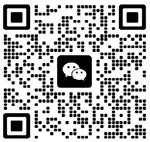Is the export of solder paste regulated?
Whether or not the export of solder paste is controlled depends on its composition, use and target market.Under the latest 2025 regulations, solder pastes containing metallic elements such as bismuth, tungsten, tellurium, molybdenum, indium and antimony or used in military/aerospace applications may be subject to stringent controls and require export licences, while ordinary civilian lead-free solder pastes are not normally regulated but are subject to basic certification requirements.
Key Analysis:
I. Circumstances subject to control
Strategic metal components
Bismuth (Bi): On 4 February 2025, China's Ministry of Commerce and General Administration of Customs issued an announcement to include bismuth and related items in the Export Control List of Dual-use Items and Technologies.If the solder paste contains bismuth (e.g. the tin-bismuth alloy "Sn42Bi58" seized by Nanning Customs had a bismuth content of 55.3%), an Export Licence for Dual-use Items is required.
Other metals: compounds or alloys of tungsten, tellurium, molybdenum, indium, antimony, etc. may also be subject to control, please refer to the latest announcement for details.
Military/Aerospace Grade Uses
If solder paste is used in sensitive areas such as military electronic equipment, nuclear reactor parts, etc. (even if the composition is not controlled), it may be listed on the Arms Export Control List (e.g., China's Dual-Use Items Export Control Regulations or U.S. ITAR regulations).
Country-specific trade controls
China: Exports of solder pastes containing controlled metals such as bismuth outside of China require a licence application through the Ministry of Commerce (MOFCOM) and proof of end-user and use.
U.S.: If the product contains ≥25% U.S. technical components, exports to countries such as Russia and Iran require a licence through BIS.
II. Circumstances not subject to control
Ordinary lead-free solder paste (such as Sn-Ag-Cu alloy):
Comply with RoHS/REACH and other environmental standards, export only need to provide MSDS (Safety Data Sheet), RoHS test report, no need for special licences.
However, it should be noted that if the target market (e.g. EU) has requirements on recycled tin content (e.g. New Battery Regulation requires ≥30% of recycled tin), the formula needs to be adjusted.
Solder paste for civil electronics:
Solder pastes used in the production of consumer electronics, such as mobile phones and computers, and which do not involve strategic metals or military use, usually without additional controls.
III. Ingredient testing and classification
Commission a laboratory to test the composition of solder paste to confirm whether it contains controlled metals (e.g. whether the bismuth content exceeds the standard).
Check the HS code (e.g. bismuth-containing solder paste may be classified as 8543.90.00) to clarify the regulatory category.
Apply for a licence (if required)
China: Submit the application for "Export Licence for Dual-use Items" to the Ministry of Commerce, with enterprise qualifications, contracts, end-user certificates and other materials.
U.S.A.: Apply for licence to BIS through SNAP-R system, need to disclose product technical details and usage.
Standardise declaration and packaging
Ensure the same labelling of ingredients on the inner and outer packages to avoid misrepresentation of the product name (e.g. "tin-bismuth alloy" is declared as "low-temperature tin powder/paste").
Cooperate with customs inspection and provide complete technical documents and declaration of compliance.
Focus on international developments
The EU's New Battery Regulation on recycled materials may affect the design of solder paste formulations.
Under the background of US-China trade friction, high-reliability solder (e.g. for chip packaging) may face stricter export scrutiny.
IV. Recent Enforcement Cases
Nanning Customs seized a case of false declaration:
In March 2025, an enterprise declared that it was exporting "low temperature solder paste" to Thailand, but the bismuth content was detected to be 55.3%, and it was detained because it did not provide a licence.The case revealed that the Customs strengthened its inspection efforts through intelligent map review, big data analysis and other technical means.
Multi-departmental joint action:
In May 2025, China deployed a special operation to combat the smuggling of strategic minerals, focusing on false declarations and smuggling by entrapment, etc., so companies need to guard against compliance risks.
Conclusion:
Solder paste exports are not all controlled, but companies need to assess the risk based on product composition, use and target market dynamics.It is recommended to establish a compliance system, including composition testing, licence application, declaration specifications, etc., in order to avoid legal risks.

